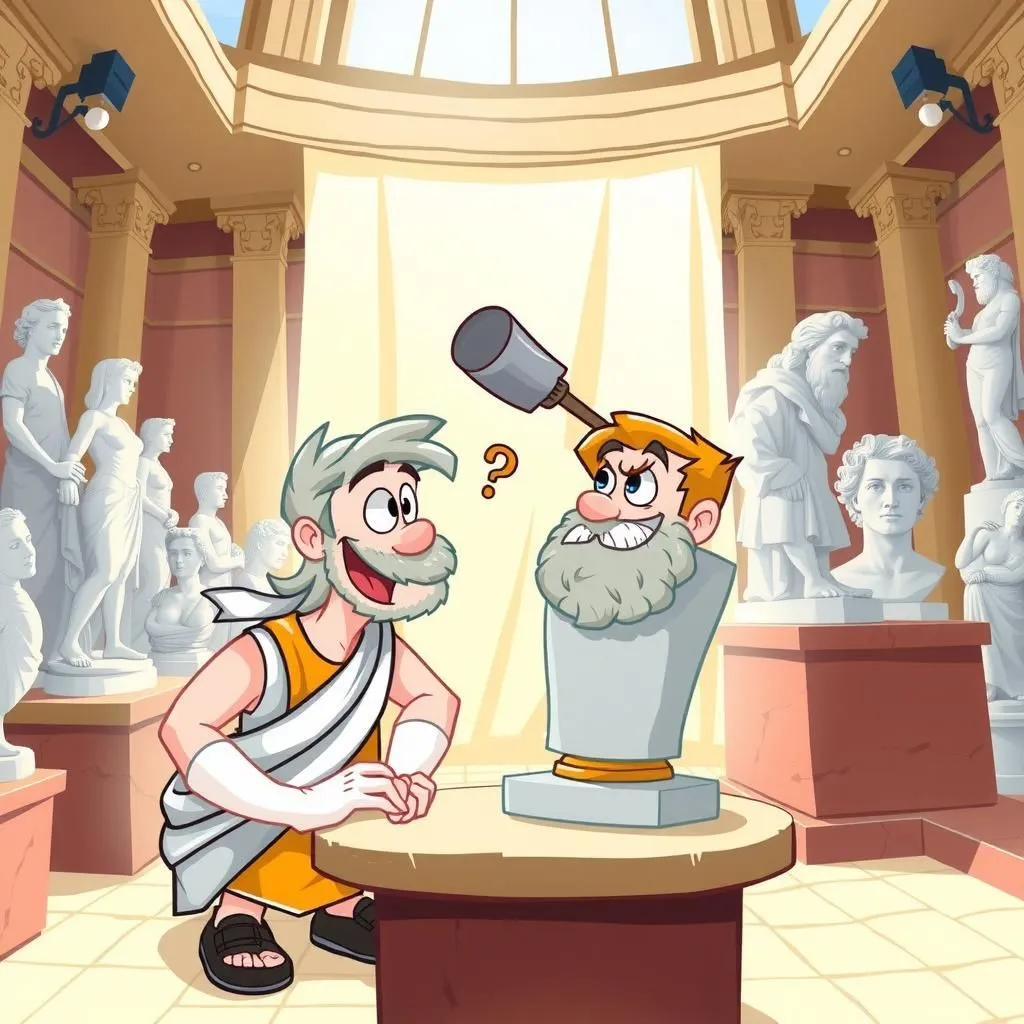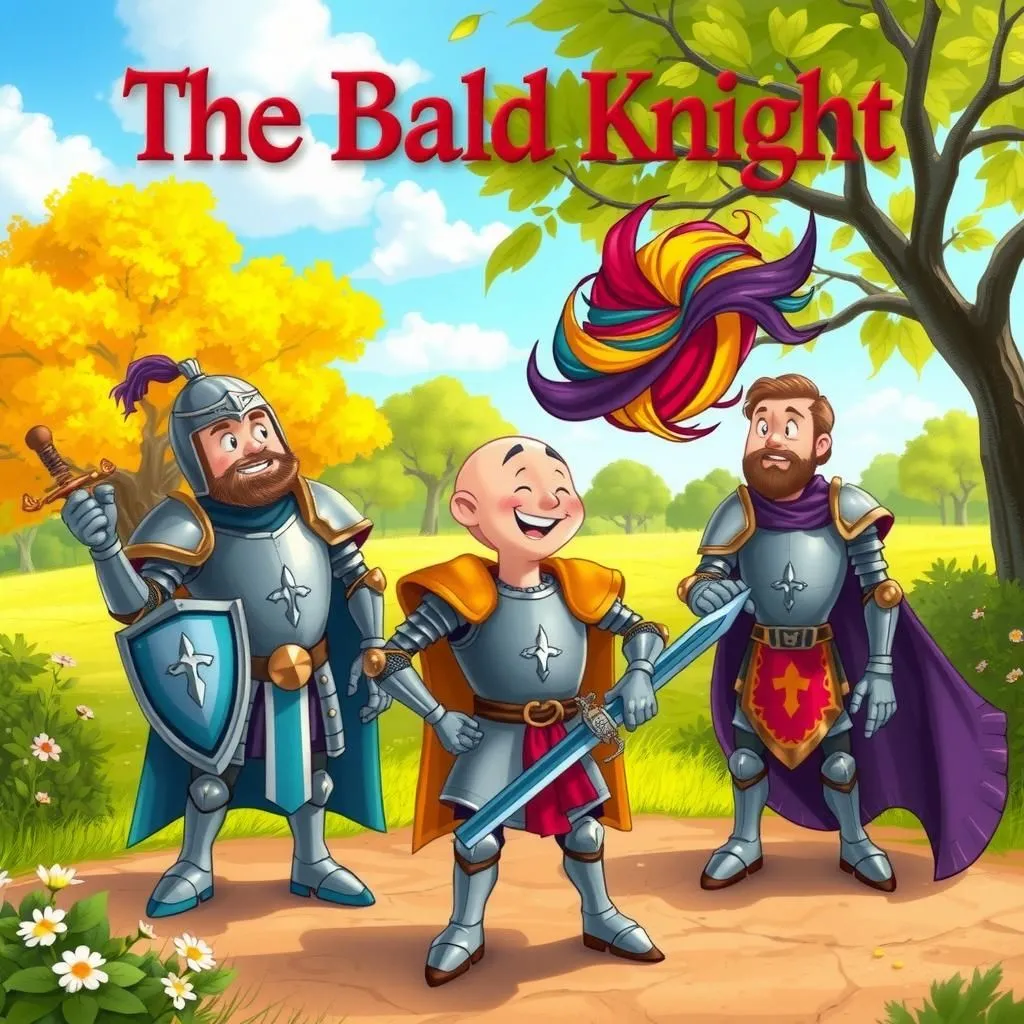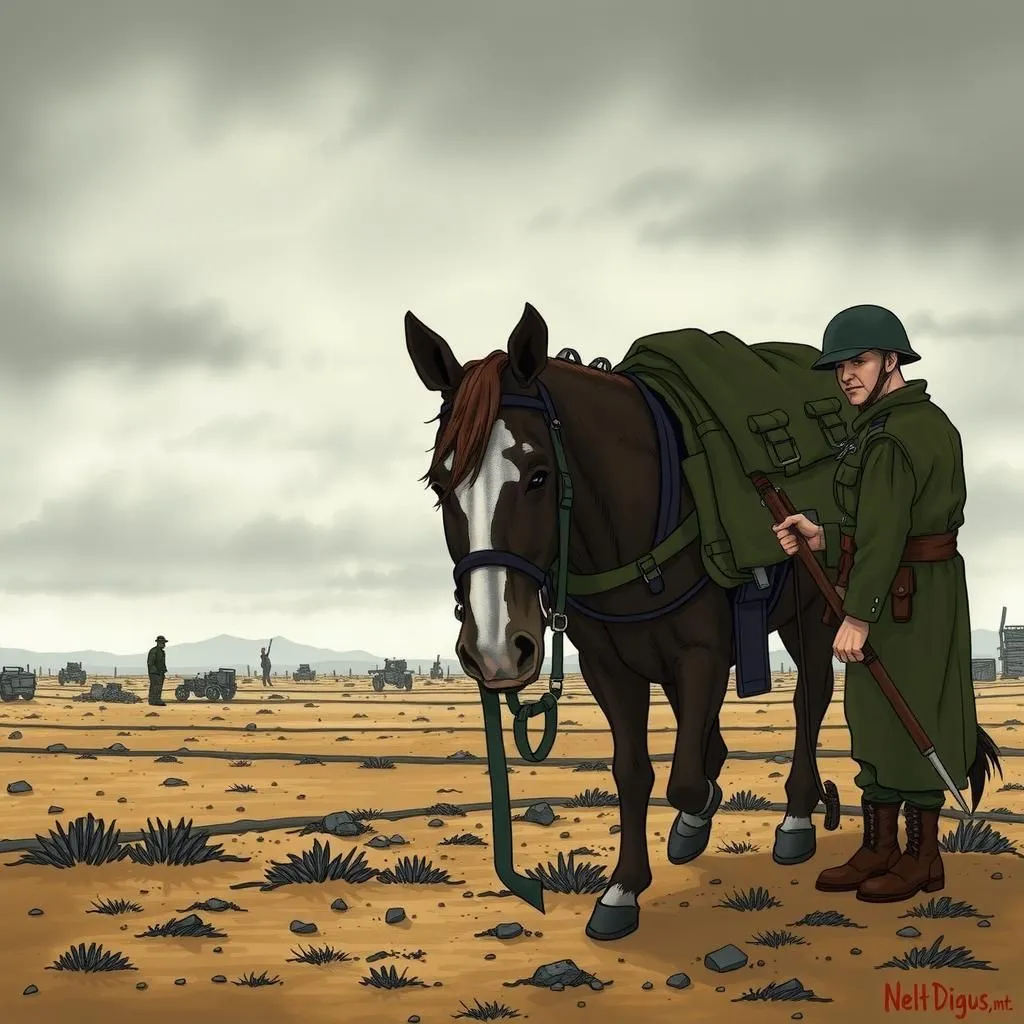
Mercury and the Sculptor
In "Mercury and the Sculptor," Mercury, disguised as a man, visits a sculptor to assess his esteem among mortals. After inquiring about the prices of Jupiter and Juno's statues, he humorously suggests his own statue should be valued higher, only for the sculptor to quip that he'd throw it in for free if Mercury buys the other two. This concise moral story highlights the importance of humility and the sometimes inflated self-worth that can lead to humorous situations.


